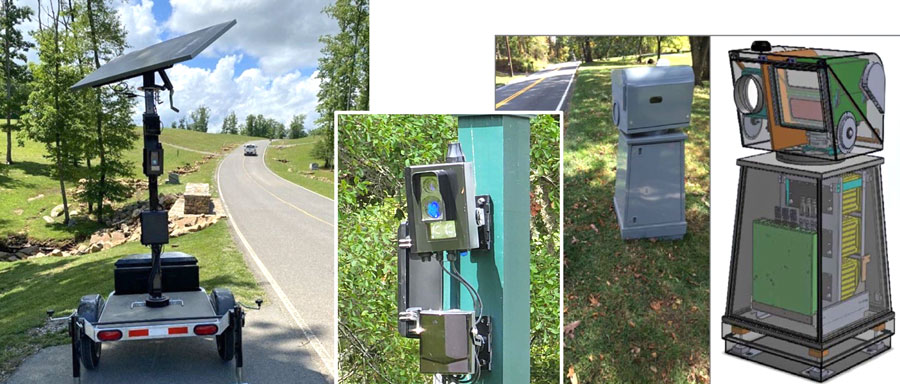PUSLINCH – Speeding is a top concern in Puslinch, so council was happy to hear a presentation about automated speed enforcement (photo radar) from Local Authority Services (LAS) at its Nov. 8 meeting.
LAS is the service wing of the Association of Municipalities of Ontario (AMO). As such, it provides services to municipalities such as bulk purchasing and helps municipalities with complex problems.
Tanner Watt, a municipal program specialist with LAS, explained what its automated speed enforcement program includes and how it might help Puslinch with its speeding issues.
If Puslinch signs on, LAS will provide cameras and associated equipment, which the township would lease.
It would process violation tickets and would go to provincial offences court if a ticket is challenged.
It’s a new program for LAS that is currently starting a pilot project with the City of Barrie to test the waters – particularly the ticket processing end.
“We expect in early 2024 to open this to other municipalities,” Watt said. “There has been a lot of interest.”
Conduent Transportation provides the cameras and they have a range of options: fixed, portable, solar and hard-wired.
To start, Barrie would be the centre that processes all tickets as it already employs provincial offences officers, but Watt envisions a day when there will be several processing centres in the province.
If all the municipalities in Wellington County choose LAS, the county could be the processing centre out here, he suggested.
The township would keep some of that ticket money.
According to provincial legislation, automated speed enforcement cameras can only be set up in school zones and community safety zones.
The township would also have to justify to the province with traffic study data, that the proposed location of the cameras is appropriate.
As well as leasing the cameras, the township would pay LAS $22 to $25 per ticket to cover processing costs.
There could also be other costs, such as fees to the court or adjudication.
“That depends on the agreement with the court system,” Watt said.
“The break-even point is 70 to 90 tickets per month. Below that will be cost; above that will be revenue.”
Watt said the criteria for community safety zones has changed.
“It could be any road under 80km/hr,” he said. “If there’s suitable traffic study information, council should be able to put a camera on it.”
Watt said the cameras count and store the speeds of every vehicle, so over time the township can see if speeds have changed.
“That’s what the province wants to see,” he said.
Councillor Sara Bailey noted that private vendor Redflex Traffic Systems recently made a presentation to the county roads committee offering its own automated speed enforcement program.
“When me make our decision, we have to make sure we work with the county,” she said. “Should we inform the county we’re considering this?”
Councillor John Sepulis noted that many county roads go through Puslinch, so for that reason as well, the county should be informed.
Watt said the township should start collecting that traffic data now and begin identifying potential locations for the cameras.
Mayor James Seeley said the OPP would have collision data and their own roads management plan would have some road usage data that might be helpful.
“I don’t want this to be a cash grab and I don’t want to rely on any surplus,” Seeley said. “The goal is to make people drive slower and make our roads safer.”
Seeley also wanted to be clear about community safety zones. It was his understanding that they can only be on roads with a school, a community centre or a hospital.
“I would like staff to reach out to the government and be sure,” he said.
In the end, council voted for staff to seek clarity on the criteria for establishing community safety zones, to inform the county clerk of Puslinch’s interest in the automated speed enforcement program with LAS, and the township’s desire to work with the county on the issue.
“If community safety zones are going to be loosened, all municipalities will be on board,” Seeley said.
“We want to be first out of the gate.”




